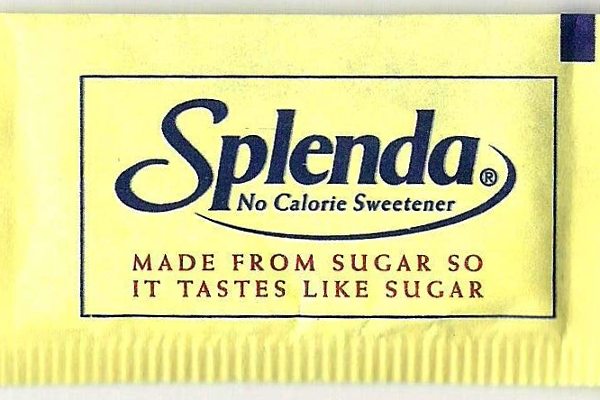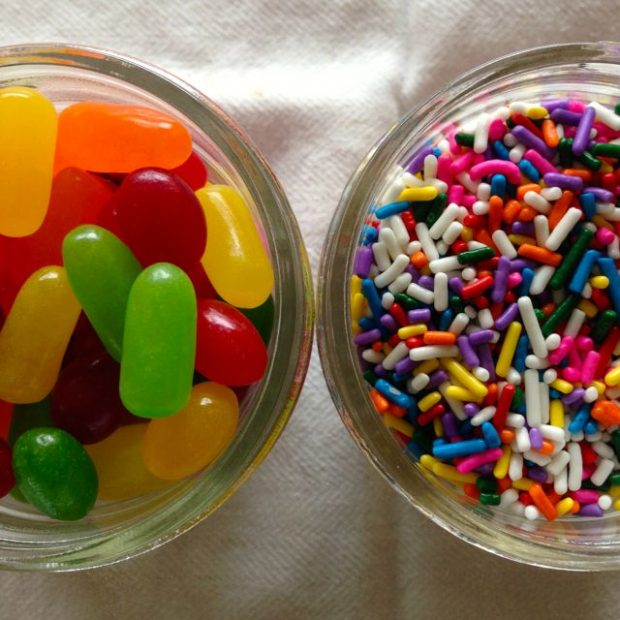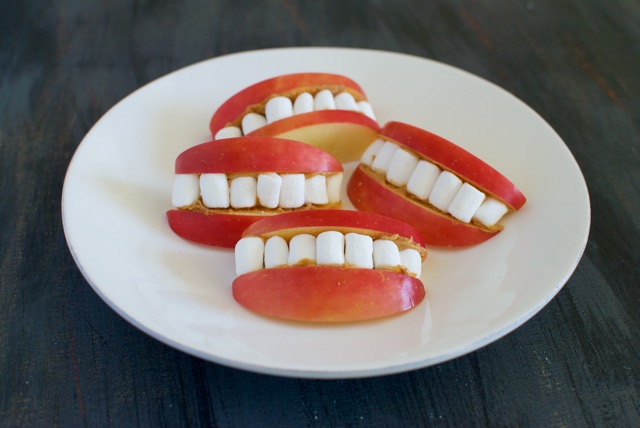The more I learn about food, the more I realize how many chemicals (over 300) are added to the foods many of us eat everyday.
Sure, these chemicals have purpose. They preserve. They bind. They add texture. Some even reduce calories. But many of them are proven to be carcinogenic, to alter behavior, to contribute to conditions Americans are suffering from. Yet they’re still 100% allowed in our food supply.
Listing every food additive here or trying to avoid them all would be too overwhelming and frankly, unrealistic. So let’s start slow.
Below are four chemicals worth avoiding, at least most of the time. While the occasional Diet Coke or dollop of Cool Whip won’t hurt you, repeated exposure to these additives may damage your health.
Artificial sweeteners.
Whether it’s aspartame (diet soda, gum, light yogurt), sucralose (Splenda, reduced-sugar bars/cookies/oatmeal/pudding), saccharin (diabetic candy, Sweet-n-low), these sweeteners are no good. They mess with your metabolism, can inhibit weight loss, and are linked to cancer. More on artificial sweeteners here.
What to choose instead: The real thing – sugar, honey, maple syrup, etc. Sweeteners with calories. As long as you are eating unsweetened foods & drinks most of the time, choosing caloric sweeteners on occasion is the best choice for your health. If you have a soda or diet soda habit, try to move to sparkling water or water with fruit & veggie essences. Over time you’ll adjust.
Food coloring.
Artificial food dyes (Red #3, Red #40, Yellow #6, Blue #1, Blue #2 etc) are petroleum-derived, and have been linked to hyperactivity in kids, learning disabilities, aggressiveness, irritability and more. These are found in tons of processed foods, from candy to macaroni & cheese to salad dressings.
What to choose instead: Foods that aren’t colored (e.g. choose a mint chocolate chip ice cream that’s white, not green) or at the very least, foods that have been colored with fruit & vegetable concentrates. A quick peek at the ingredients list on a packaged food will reveal whether there are food dyes added (look for those numbers like “Red #40” and if you see anything that’s a color followed by a number, that’s a red flag).
Sodium Nitrate / Sodium Nitrite.
Found in most processed meats – hot dogs, deli meat, bacon, ham, smoked fish, etc. – nitrates and nitrites are preservatives that are now widely considered carcinogenic. The USDA actually tried to ban nitrites in the 1970’s but succumbed to complaints by food companies who claimed it was the only way they could preserve meats (sigh).
What to choose instead: organic and natural processed meats that only use salt as a preservative. Read labels and ingredients lists to make sure the meats you’re buying are nitrate/nitrite-free.
Monosodium Glutamate (MSG)
Long used as a flavor enhancer in chips, soups, seasonings, sauces and restaurant foods, MSG has been linked to headaches, changes in heart rate, depression, obesity and more. Glutamate, MSG’s key component, can also be found in hydrolyzed whey and soy proteins, yeast extract, autolyzed yeast and calcium caseinate. Pretty much any ranch or cheese-flavored food will have one of these additives in the ingredients list, and can cause similar symptoms to MSG. Read ingredients lists to see what’s hiding in your favorite snack foods (even the natural brands have yeast extract!).
What to choose instead: Make dressings, sauces and broths from scratch, or choose organic brands that don’t contain these flavor-enhancing additives. Ask at your favorite Asian restaurants what they use instead of MSG or MSG-laden sauces. And snack on foods that aren’t cheese or ranch-flavored.









4 Comments
Anna
October 5, 2015 at 6:58 pmHi Amelia,
Thank you for the post. I try to avoid carrageenan as much as possible.
Margaret Ann @ MAK and Her Cheese
October 10, 2015 at 6:55 pmGreat list! I try to avoid mono and diglycerides as well. What do you think about stevia as an all-natural calorie-free sweetener?
Amelia Winslow
October 12, 2015 at 4:24 pmThose are good additions! Re: Stevia…I don’t care for calorie-free sweeteners in general. Even a “natural” sweetener can cause unnatural metabolic reactions since your body is expecting calories when it tastes something sweet. Stevia hasn’t been extensively studied, but my feeling is it’s better to eat/drink unsweetened foods most of the time, then opt for real sugar (or honey, maple syrup, etc) when you want a sweet treat.
Margaret Ann @ MAK and Her Cheese
October 12, 2015 at 9:07 pmThanks for the insight!